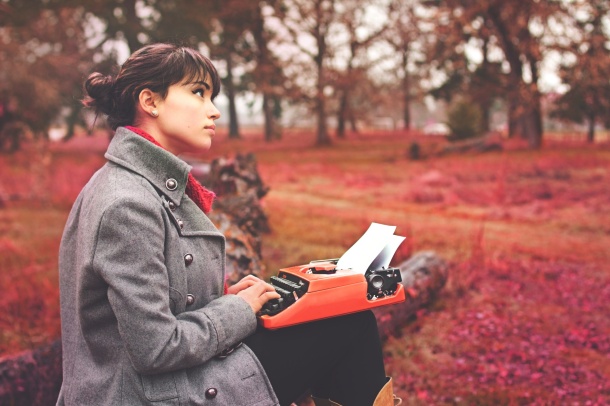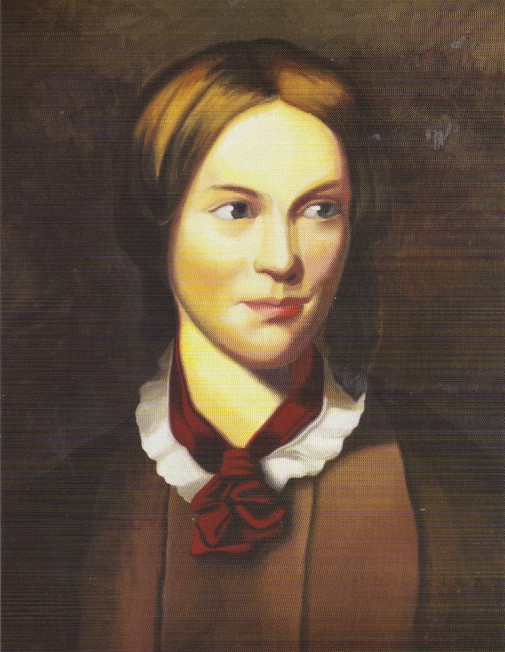By Neha Rassal

A WMN survey found that 55 percent of people questioned thought that women are better at writing love stories. / Christian Gonzalez – Creative Commons
Once upon a time, there was a little girl named Maria Vickers who loved to write. She wanted to write the best children’s book ever, but as she grew up, the dream drifted away and the real world took over. She was content with her life but then tragedy struck and she was taken ill.
In 2010 Vickers was diagnosed with myasthenia gravis, a long-term condition that causes muscle weakness, and she became disabled. Unable to work anymore and unsure what to do with her life, she fell into depression. Things seemed to be going nowhere until her sister convinced her to start writing again.
She started writing online fanfiction for Japanese graphic novels, and encouraged by the response she received, Vickers decided to write a book. “E. L. James, writer of 50 Shades of Grey, started off writing Twilight fanfiction. And I thought: if she can do it, I can do it,” she says.
Vickers completed the manuscript of her first suspense-romance novel, Another Chance, and forwarded it to a few publishers who showed little interest. “They said that they had so many women romance authors that [my book] wasn’t anything new,” she says.
“E. L. James, writer of 50 Shades of Grey, started off writing Twilight fanfiction. And I thought: if she can do it, I can do it”
The publishers were right in a way – there are so many women writing about romance that the public might think that it’s all women write about.
WMN conducted an exclusive readership survey of 130 people, 57 per cent of whom were aged over 30, and it was revealed that 67 per cent of people said that their favourite books are written by men. More than half thought that women are better at writing love stories. “Men are more mature writers because they have experienced the real world better. Women are good with passion and that is not something everyone likes to read about,” says one reader.
Hiding behind a name
While this stereotype has created barriers for many female writers, there are those who embrace it. “I find it empowering that women own the romance category,” says JC Santo, author of the Navy Love series. She believes that there is nothing wrong in admitting that women are more in tune with their emotions.
“Many of my readers did mistake me for a male writer because of my pen name,” she says. Even though choosing a gender vague nom de plume was not a conscious decision on Santo’s part, she admits that it would definitely help her situation if she were to write in a male-dominated genre.
Using ambiguous pseudonyms to attract a wider readership is, of course, nothing new. Charlotte Brontë, who died 162 years ago this month, published her classic novel Jane Eyre under the male name Currer Bell in 1847. Louisa May Alcott, writer of Little Women, started her writing career as A.M. Barnard. Nora Roberts, who is famous for her contemporary romance novels, also writes suspense stories under the name J.D. Robbs. One of the current best-selling female authors J.K. Rowling, who wrote the Harry Potter series, deliberately chose to have gender vague pen name so that young boys would read her work.

Charlotte Brontë published her novel Jane Eyre under the male name Currer Bell. / summonedbyfells – Creative Commons
American author Samatha Harris thinks that using male pseudonyms to write other genres is understandable because there are some things the audiences are not ready to accept. “If Dan Brown was ‘Danielle Brown’, it wouldn’t have caught on the way it did,” she says, “People wouldn’t have trusted the science behind it.”
Caroline Byrne, a playwright, has written a farce about the South-Asian community in the UK, and monologues for women on topics such as infertility and divorce. But she has decided to write her next play under a male pseudonym to see if people will react differently to it. “I have been told that my characters ‘need to be nicer’,” she says. “I wonder if male writers get this feedback?”
“If Dan Brown was ‘Danielle Brown’, it wouldn’t have caught on the way it did – people wouldn’t have trusted the science behind it”
Of course, there are always some exceptions. Nicholas Sparks, who is a man both in name and fact, is one of the best-selling romance novelists. J.K. Rowling, who is a woman, dominates the masculine world of fantasy writing.
Sandra Peachey, who wrote the life-coaching book Peachey Letters, thought that her readership would be almost entirely entirely be female. “I was pleasantly surprised to see men reading the book and saying they loved it,” she says. “So I think that books are more about preference rather than gender.”
An industry that favours men
For women writers a wider public reach is not the only motive behind taking up a masculine alias. Within the publishing industry more doors seem to open for male authors than female. Last year Catherine Nichols sent out the proposal of her novel to various publishers both under her name and under a fake male name. It turned out that her male self was eight times more likely to get a response from the publishers for the same story than she was.
“People want that strong character because it’s almost inherent. They have learned it from the young age: men are strong, women are fairer, men take care of women”
The question that arises is: do publishers, much like the readers, judge a book by its boobs as well?
“Much of the publishing industry is still run by the old dogs from the Eighties – the good old boys club,” Harris says. “They call out for diversity but when they are presented with it, they turn it down.”
How much blame can be put on the publishers for fuelling this gender inequality is debatable. For most of them it does not seem to be a personal decision but rather something they have to cater to in order to market the books best. While writing is art, publishing is a business.
“Reducing authors’ capabilities to their sex is a demonstrated nonsense coming from the traditional roles assumed by men and women in our societies,” says Jane Meistermann from Beta Publishers. “But if I’m being commercially crude, as a publisher, all you care about are the stories, universes, characters, because that’s what we’re selling. It’s the very core of the business.”

It appears female writers usually receive more positive feedback to their novel proposals when they used a male pen name. /Stewart Butterfield – Flickr
While there is a gender gap in the publishing industry, the books written by women that do get published often do not seem to get as much attention as those produced by men.
VIDA, a self-proclaimed feminist organisation that advocates gender parity in literary arts, tallied the gender inequality in book reviews published in both the UK and the US. The report showed that the literary media coverage has largely been male-centric in the past year. Of the 192 books featured in the London Review of Books, only 39 were written by women. Similarly, the New York Review of Books reviewed 270 books, of which only 52 had female authors.
Alpha male for the win
Women writers do not seem to be faring so well in the literary accolades sector either. A study conducted by WMN shows that since 2000, 61 books written by male authors have been shortlisted for the Man Booker Prize, nearly double the 35 shortlisted books written by females. From 1970 to the present day, only 17 women have won the Man Booker Prize whereas the number of male winners stands at 31. The results are similar in the fiction category of the Pulitzer Prizes, where women have won 15 awards compared to men’s 28.
An analysis by novelist Nicola Griffith reveals that in the last 15 years, the number of book-length works “from a woman’s perspective or about a woman” that were considered for the Pulitzer Prize is zero. Examining the major literary awards, she concluded that the books that tend to win revolved around a male character.
Vickers thinks that this is because most people want to see a strong, alpha male. “People want that strong character because it’s almost inherent. They have learned it from the young age: men are strong, women are fairer, men take care of women,” she says.
Yet it is women who keep the industry going. A 2012 report by US-based National Endowment for the Art states that of the American adults who read novels, books or poems, 55 per cent were female. And although there seems to be no quick solution to ending the gender inequality in the writing industry, some things are getting better.
“The perceptions and demands are changing,” admits Harris. “But it is a slow process. I feel in the next 15 to 20 years, the literature will be much more diverse in terms of both writers and characters.”
Rise of the self-publishing phenomenon
Part of the change could be the phenomenon of self-publishing, which enables authors to find their own readers. In 2014, over 31 per cent of the e-books sold on Kindle were self-published. And 22 per cent of the e-books sold in the UK last year were self-published. The rise does not seem to be surprising.
“Traditional publishing is certainly more romantic isn’t it – it’s called traditional for a reason. It usually includes everything,” says Chantelle Wadsworth of Olympia Publishers. “But self-publishing is easy and you only have to rely on yourself.”
After being unable to find a publisher, Maria Vickers self-published her first novel in 2015 and is currently working on the third book of her Love Seekers trilogy. “The good thing about the [self-publishing] community is that the authors promote each other’s books as well,” she says. “I remember being in my high school trying to get published even with a magazine article and it was so difficult. But now, I can blog and I can write my stories on a digital platform. And the response has been great.”